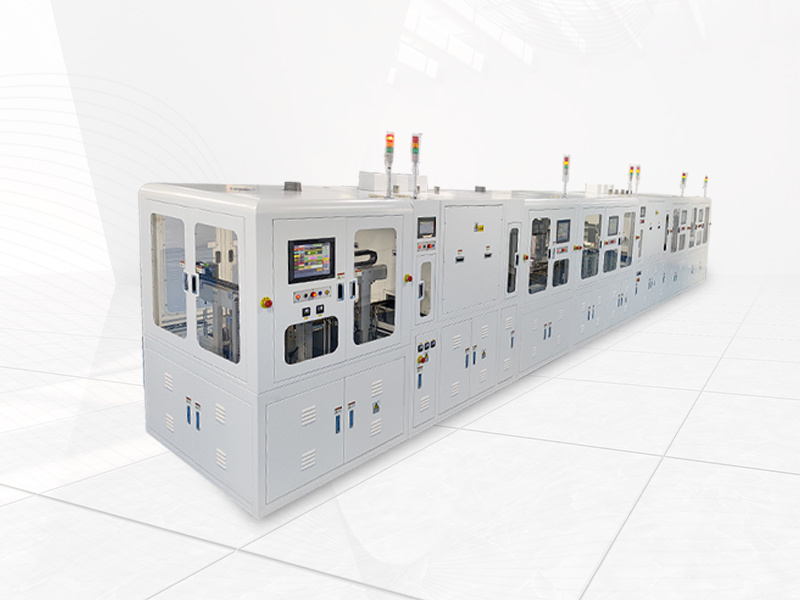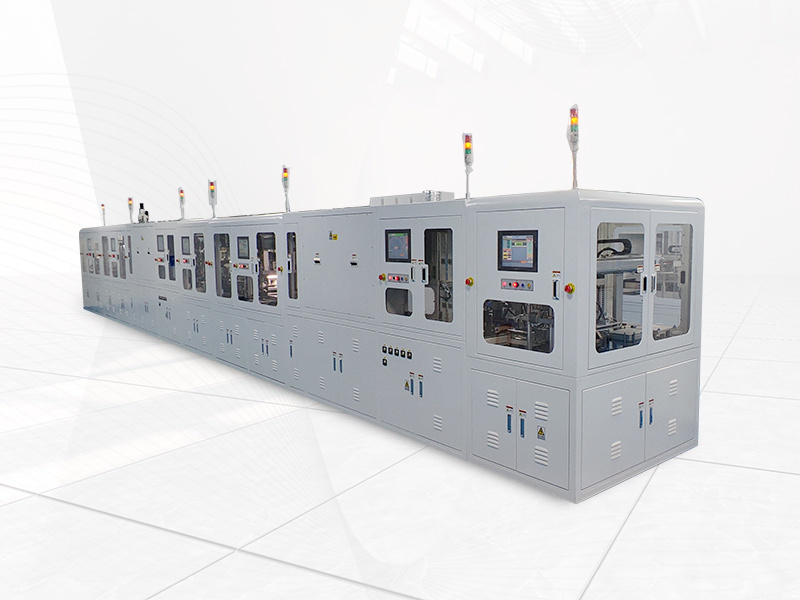Exploring the Benefits and Functionality of Automatic Dipping Machines
Release time:
Jun 13,2025
Automatic dipping machines are innovative solutions designed to streamline the dipping process in various manufacturing applications. These machines are engineered to provide consistent and precise dipping, making them invaluable in industries such as coating, painting, and food processing. Understanding the functionality and benefits of automatic dipping machines can greatly assist businesses in optimizing their production workflows.
One of the primary advantages of using an automatic dipping machine is enhanced efficiency. These machines are capable of handling large volumes of products with minimal manual intervention, significantly reducing labor costs and time. They can automatically control the dipping speed, duration, and temperature of the materials used, ensuring that every item is uniformly coated without the variations that often occur in manual processes. This level of automation not only speeds up production but also minimizes the risk of human error.
Precision is another critical aspect where automatic dipping machines excel. They are designed to deliver consistent results, providing uniform coating thickness and coverage across all products. This reliability is particularly important in industries where quality control is paramount. For instance, in the electronics industry, components must be coated precisely to ensure functionality and longevity. Automatic dipping machines help maintain these stringent quality standards, thereby reducing waste and enhancing overall product performance.
Furthermore, automatic dipping machines can accommodate a variety of materials and coating processes. Whether it's liquid coatings, paints, or even specialized solutions, these machines are versatile enough to handle different types of dips. This flexibility allows manufacturers to easily switch between products without the need for extensive reconfiguration, thus supporting a more agile manufacturing environment.
In addition to efficiency and precision, automatic dipping machines often come equipped with advanced features such as programmable controls, sensors for monitoring dipping levels, and safety mechanisms to prevent accidents. These technological advancements not only improve the operational safety of the machines but also enhance user experience by providing real-time feedback and control over the dipping process.
Moreover, businesses that invest in automatic dipping machines often see a quick return on investment. By increasing production speed and improving product quality, manufacturers can boost their output and meet customer demands more effectively. This, in turn, can lead to greater customer satisfaction and loyalty, as well as an improved reputation in the marketplace.
In conclusion, automatic dipping machines represent a significant advancement in manufacturing technology. By enhancing efficiency, ensuring precision, and providing versatility, they can transform how companies approach their production processes. As industries continue to evolve, investing in such innovative machinery will be essential for businesses aiming to stay competitive and meet the ever-changing demands of the market.
One of the primary advantages of using an automatic dipping machine is enhanced efficiency. These machines are capable of handling large volumes of products with minimal manual intervention, significantly reducing labor costs and time. They can automatically control the dipping speed, duration, and temperature of the materials used, ensuring that every item is uniformly coated without the variations that often occur in manual processes. This level of automation not only speeds up production but also minimizes the risk of human error.
Precision is another critical aspect where automatic dipping machines excel. They are designed to deliver consistent results, providing uniform coating thickness and coverage across all products. This reliability is particularly important in industries where quality control is paramount. For instance, in the electronics industry, components must be coated precisely to ensure functionality and longevity. Automatic dipping machines help maintain these stringent quality standards, thereby reducing waste and enhancing overall product performance.
Furthermore, automatic dipping machines can accommodate a variety of materials and coating processes. Whether it's liquid coatings, paints, or even specialized solutions, these machines are versatile enough to handle different types of dips. This flexibility allows manufacturers to easily switch between products without the need for extensive reconfiguration, thus supporting a more agile manufacturing environment.
In addition to efficiency and precision, automatic dipping machines often come equipped with advanced features such as programmable controls, sensors for monitoring dipping levels, and safety mechanisms to prevent accidents. These technological advancements not only improve the operational safety of the machines but also enhance user experience by providing real-time feedback and control over the dipping process.
Moreover, businesses that invest in automatic dipping machines often see a quick return on investment. By increasing production speed and improving product quality, manufacturers can boost their output and meet customer demands more effectively. This, in turn, can lead to greater customer satisfaction and loyalty, as well as an improved reputation in the marketplace.
In conclusion, automatic dipping machines represent a significant advancement in manufacturing technology. By enhancing efficiency, ensuring precision, and providing versatility, they can transform how companies approach their production processes. As industries continue to evolve, investing in such innovative machinery will be essential for businesses aiming to stay competitive and meet the ever-changing demands of the market.









